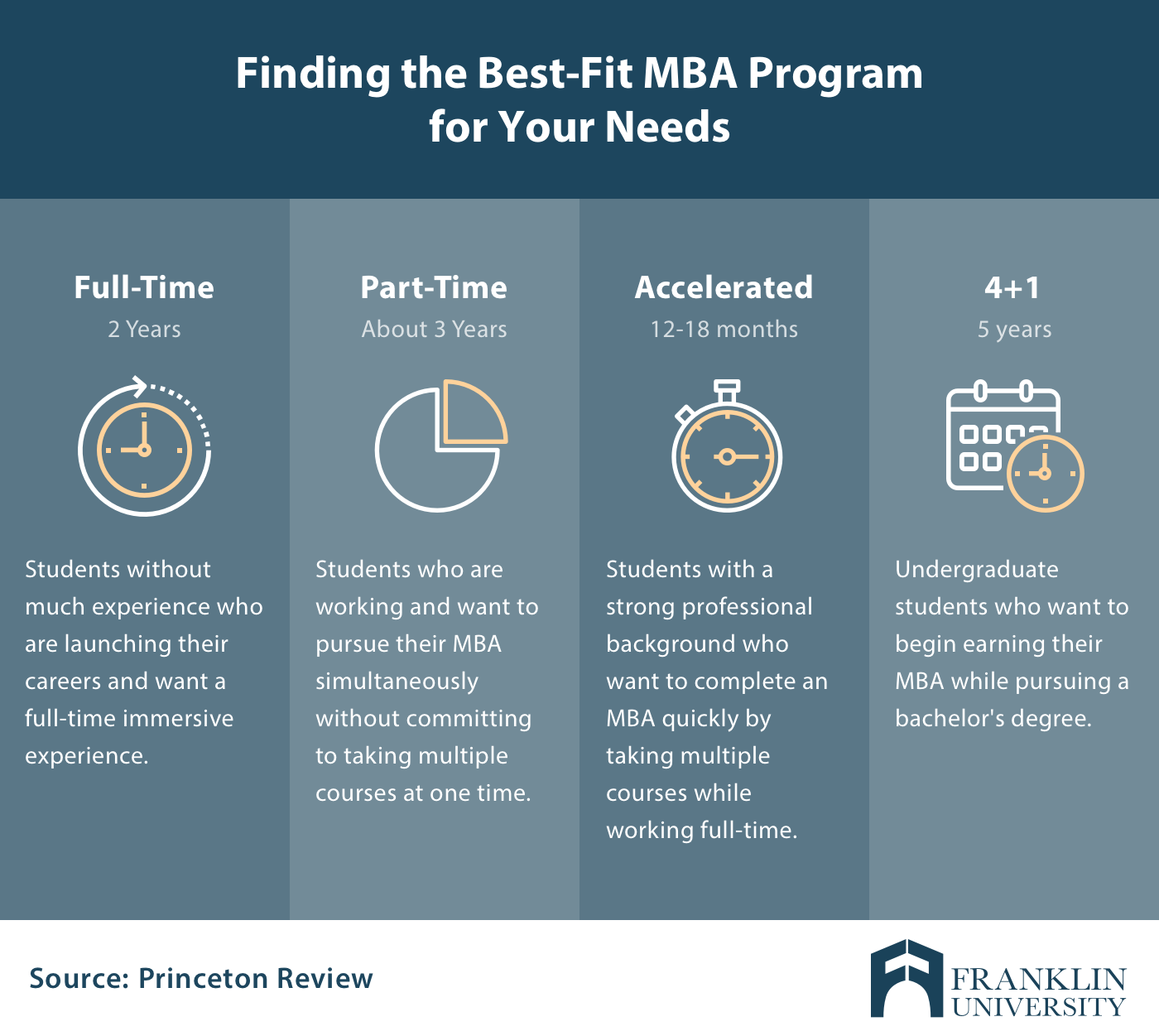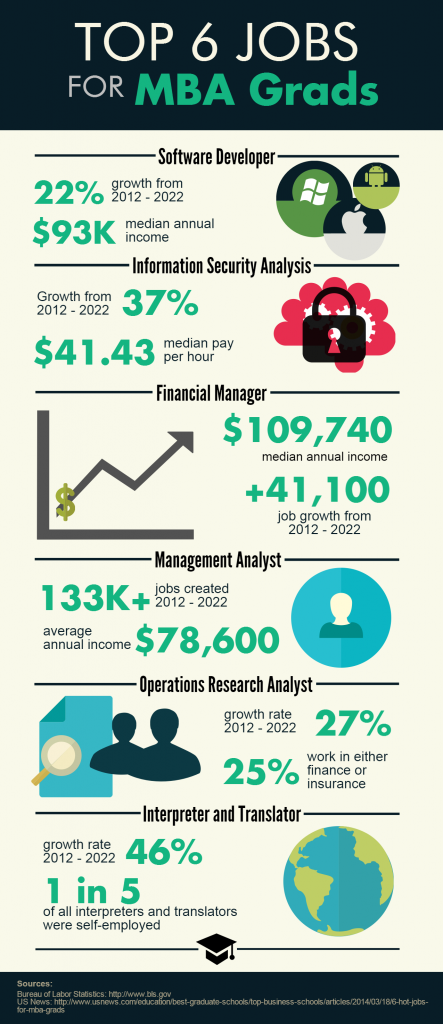Earning a Master of Business Administration (MBA) degree can significantly enhance career prospects by providing advanced business knowledge and skills. However, the time required to obtain this coveted qualification varies depending on several factors. Understanding the factors that influence the duration and choosing a program that aligns with your schedule and goals are crucial. This article will delve into the aspects that determine how long it takes to get an MBA degree, providing you with the information necessary to make an informed decision about your educational journey.
MBA Program Duration: A Closer Look
Full-Time MBA Programs
Full-time MBA programs are designed for students who want to dedicate themselves fully to their studies. They typically last for two years and involve a rigorous course load of core business subjects, electives, and often a capstone project. This immersive experience allows students to develop a strong foundation in business principles, build a network of peers, and gain practical skills through internships and case studies.
Part-Time MBA Programs
Part-time MBA programs cater to professionals who want to pursue an MBA while maintaining their current jobs. These programs typically last for two to four years and offer greater flexibility in terms of course scheduling. They are often delivered in a blended format, combining online learning with in-person classes, making it easier for students to balance their studies with their work and personal commitments.
Executive MBA Programs
Executive MBA programs are tailored for experienced professionals with several years of leadership experience. These programs typically last for one to two years and offer a more accelerated learning pace, often delivered in a modular format. They focus on developing strategic leadership skills and provide opportunities for networking with senior executives from various industries.
| Program Type | Duration | Typical Format | Key Features |
|---|---|---|---|
| Full-Time MBA | 2 years | Immersive, on-campus | Rigorous coursework, internships, networking |
| Part-Time MBA | 2-4 years | Blended (online & in-person), flexible scheduling | Work-life balance, tailored for professionals |
| Executive MBA | 1-2 years | Modular, accelerated, focused on leadership | Networking with senior executives, practical application |
How quickly can you get an MBA?

How long does an MBA program typically take?
The length of an MBA program varies depending on the program’s format and your prior experience. Most full-time MBA programs take two years to complete, while part-time or online MBA programs can take three to five years. Some programs also offer accelerated options, such as one-year MBA programs or executive MBA programs that can be completed in less than two years.
What factors influence the length of an MBA program?
Several factors influence the length of an MBA program, including:
- Program format: Full-time MBA programs are generally shorter than part-time or online programs.
- Prior work experience: Students with significant work experience may be able to complete an MBA program in a shorter time frame due to their existing knowledge and skills.
- Program intensity: Some programs offer accelerated options, such as one-year MBA programs or executive MBA programs, that can be completed in a shorter time frame.
How can I find a program that fits my timeline?
The best way to find an MBA program that fits your timeline is to research different programs and their requirements. You can use online resources such as the Graduate Management Admission Council (GMAC) website or the Financial Times’ MBA rankings. When you are researching programs, be sure to consider the following factors:
- Program length: Choose a program that offers a format that fits your timeline and lifestyle.
- Prior work experience requirements: Some programs require students to have a certain number of years of work experience before they can enroll.
- Program intensity: Choose a program that offers an intensity level that fits your learning style and schedule.
Which MBA has highest salary?
The salary of an MBA graduate is influenced by several factors, including:
- Program Prestige: Top-tier business schools, such as Harvard Business School, Stanford Graduate School of Business, and Wharton School of the University of Pennsylvania, have consistently produced graduates with high starting salaries.
- Specialization: Certain MBA specializations, such as finance, consulting, and technology, tend to have higher average salaries due to high demand and lucrative career opportunities.
- Work Experience: Students with significant prior work experience often command higher salaries upon graduation, as they bring valuable industry knowledge and professional networks to the table.
- Location: MBA graduates in major financial centers, like New York City, London, and Hong Kong, generally earn higher salaries than those in other locations.
- Job Market Conditions: The overall state of the economy and industry-specific demand play a significant role in determining salary levels for MBA graduates.
Top MBA Programs with High Average Salaries
While salaries can vary greatly depending on the factors mentioned above, several MBA programs consistently produce graduates with high starting salaries. Some of these top programs include:
- Harvard Business School
- Stanford Graduate School of Business
- Wharton School of the University of Pennsylvania
- University of Chicago Booth School of Business
- Columbia Business School
- MIT Sloan School of Management
- University of Pennsylvania (Wharton)
- Northwestern University (Kellogg)
- Yale School of Management
- University of California, Berkeley (Haas)
Beyond Average Salary: Value Proposition and Career Goals
While average salary is an important factor to consider, it’s crucial to remember that it’s not the sole indicator of the value of an MBA program. Students should also consider the program’s reputation, career support services, faculty expertise, and alignment with their long-term career goals. The ultimate success of an MBA is measured by the individual’s career trajectory and overall satisfaction.
- Career Services: Strong career services departments can provide valuable guidance and resources, including career coaching, networking events, and job placement assistance.
- Faculty Expertise: Renowned professors with industry experience and research expertise can offer valuable insights and mentorship.
- Alumni Network: A robust alumni network can open doors to job opportunities and provide valuable professional connections.
- Program Curriculum: A comprehensive curriculum that aligns with career aspirations can provide the necessary skills and knowledge for success in the chosen field.
- Personal Growth and Development: An MBA program should challenge students to think critically, solve problems creatively, and develop leadership skills.
Is it worth it to get a MBA?
The decision to pursue an MBA is a significant one, requiring careful consideration of individual circumstances, goals, and financial implications. Whether an MBA is «worth it» is highly subjective and depends on a multitude of factors. Here are some crucial points to ponder:
Career Advancement and Salary Potential:
An MBA can undoubtedly enhance career prospects and earning potential. Studies have shown that MBA graduates earn significantly higher salaries than their non-MBA counterparts.
- Increased earning power: An MBA can open doors to higher-paying executive roles, leading to greater financial rewards.
- Enhanced marketability: The degree signals a commitment to professional development, making you more attractive to potential employers.
- Expanded career opportunities: An MBA can equip you with the skills and knowledge needed to pursue diverse career paths, including leadership positions and management roles.
Networking and Personal Growth:
The MBA experience offers invaluable opportunities for professional networking and personal growth.
- Networking with peers: An MBA program brings together professionals from various industries, creating a rich network of potential collaborators and mentors.
- Development of leadership skills: The curriculum and experiential learning opportunities foster leadership, communication, and critical thinking skills, enhancing your overall competence.
- Personal transformation: The rigorous demands of an MBA program can push you beyond your comfort zone, promoting self-awareness and personal development.
Financial Considerations:
The high cost of an MBA program is a major factor to consider.
- Tuition fees and living expenses: The costs associated with an MBA can be significant, requiring careful financial planning and potential investment.
- Return on investment (ROI): While an MBA can boost earnings, it’s essential to consider the time and money invested in the degree and calculate the potential ROI.
- Debt accumulation: Many MBA students take out loans to finance their education, which can add to financial burden and require careful debt management.
Is an MBA a 6 year degree?

Is an MBA a 6-year degree?
No, an MBA is not typically a 6-year degree. Most MBA programs are designed to be completed in 2 years for full-time students. However, the total time it takes to earn an MBA can vary depending on several factors, including:
- Previous Education: Students with a bachelor’s degree in a related field may be able to complete the program faster. Some programs may offer accelerated options for students with work experience.
- Program Structure: Some MBA programs offer part-time or online options, which may extend the completion time.
- Personal Circumstances: Factors like work commitments, family responsibilities, and personal goals can affect the time it takes to complete an MBA program.
Why do some people take longer than 2 years to complete an MBA?
There are several reasons why some people take longer than two years to complete an MBA. Some common reasons include:
- Working Full-Time: Many students pursue an MBA while working full-time. This can make it challenging to manage coursework and work commitments, potentially extending the program duration.
- Part-Time Programs: Part-time MBA programs are designed to be completed over a longer period, typically 3-5 years.
- Taking Breaks: Students may take breaks from their studies due to personal reasons, such as family responsibilities or career changes.
- Program Requirements: Some MBA programs may have specific requirements that necessitate additional time to complete, such as internships, research projects, or thesis requirements.
What are the benefits of a longer MBA program?
While a traditional 2-year MBA program is the norm, there are benefits to taking longer to complete the degree. These include:
- More Work Experience: A longer program allows students to gain more work experience, which can enhance their MBA learning and application.
- Greater Flexibility: Extending the program allows for greater flexibility in managing work commitments, personal responsibilities, and other life factors.
- More In-Depth Learning: A longer program can allow students to focus on specific areas of interest and delve deeper into their studies.
Frequently Asked Questions
How long does it take to get an MBA degree?
The length of time it takes to earn an MBA degree varies depending on several factors, including the program format, the student’s prior education and work experience, and the pace at which the student chooses to study. Generally, a full-time MBA program takes two years to complete. However, some students may be able to complete the program in less time by taking more classes or by earning credits for prior learning. Part-time MBA programs, which are designed for working professionals, typically take three to five years to complete. In addition, some programs offer accelerated or executive MBA programs, which can be completed in less time than traditional programs. Students interested in an MBA program should contact the program directly to learn more about program length and options.
Can I get an MBA degree online?
Yes, it is possible to earn an MBA degree online. Many top-ranked business schools now offer fully online MBA programs. Online programs allow students to study at their own pace and from anywhere with an internet connection. They typically provide the same quality of education as traditional programs, but they offer greater flexibility and affordability for students who cannot attend a traditional program. However, it is important to note that not all online MBA programs are created equal. Some programs may be more reputable than others. Students interested in pursuing an online MBA should research programs carefully to ensure they choose a high-quality program that meets their needs.
What are the admission requirements for an MBA program?
Admission requirements for MBA programs vary depending on the program and the school. However, most programs require applicants to have a bachelor’s degree, a strong academic record, and a minimum GMAT or GRE score. Applicants may also be required to submit letters of recommendation, essays, and resumes. Some programs may also require applicants to have a certain amount of work experience. It is important to research the specific admission requirements of each program before applying. Many schools offer resources and support to help students prepare for the GMAT or GRE exam and the application process.
What are the benefits of getting an MBA degree?
Earning an MBA can offer a variety of benefits to individuals and their careers. One of the most significant benefits is increased earning potential. MBA graduates often earn significantly higher salaries than those with only a bachelor’s degree. In addition, an MBA can open doors to career advancement opportunities. It can also provide students with the skills and knowledge needed to succeed in a variety of business roles, including management, finance, marketing, and consulting. Finally, an MBA can help students develop their leadership skills, networking abilities, and critical thinking abilities, which can benefit them throughout their careers and personal lives.
How long does it take to get an MBA degree?
The length of time it takes to earn an MBA degree varies depending on several factors, including the program format, the student’s prior education and work experience, and the pace at which the student chooses to study. Generally, a full-time MBA program takes two years to complete. However, some students may be able to complete the program in less time by taking more classes or by earning credits for prior learning. Part-time MBA programs, which are designed for working professionals, typically take three to five years to complete. In addition, some programs offer accelerated or executive MBA programs, which can be completed in less time than traditional programs. Students interested in an MBA program should contact the program directly to learn more about program length and options.
Can I get an MBA degree online?
Yes, it is possible to earn an MBA degree online. Many top-ranked business schools now offer fully online MBA programs. Online programs allow students to study at their own pace and from anywhere with an internet connection. They typically provide the same quality of education as traditional programs, but they offer greater flexibility and affordability for students who cannot attend a traditional program. However, it is important to note that not all online MBA programs are created equal. Some programs may be more reputable than others. Students interested in pursuing an online MBA should research programs carefully to ensure they choose a high-quality program that meets their needs.
What are the admission requirements for an MBA program?
Admission requirements for MBA programs vary depending on the program and the school. However, most programs require applicants to have a bachelor’s degree, a strong academic record, and a minimum GMAT or GRE score. Applicants may also be required to submit letters of recommendation, essays, and resumes. Some programs may also require applicants to have a certain amount of work experience. It is important to research the specific admission requirements of each program before applying. Many schools offer resources and support to help students prepare for the GMAT or GRE exam and the application process.
What are the benefits of getting an MBA degree?
Earning an MBA can offer a variety of benefits to individuals and their careers. One of the most significant benefits is increased earning potential. MBA graduates often earn significantly higher salaries than those with only a bachelor’s degree. In addition, an MBA can open doors to career advancement opportunities. It can also provide students with the skills and knowledge needed to succeed in a variety of business roles, including management, finance, marketing, and consulting. Finally, an MBA can help students develop their leadership skills, networking abilities, and critical thinking abilities, which can benefit them throughout their careers and personal lives.



